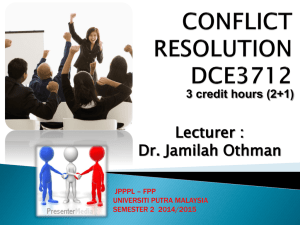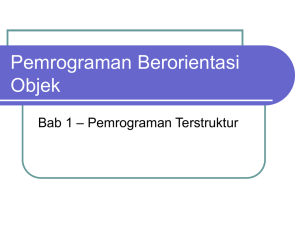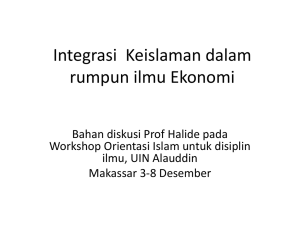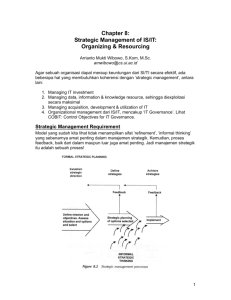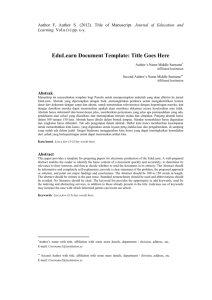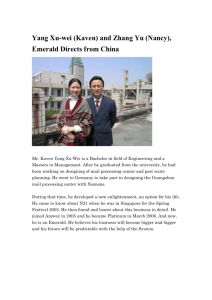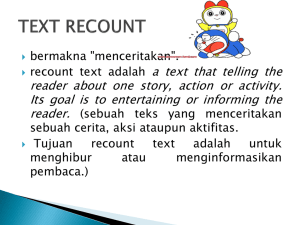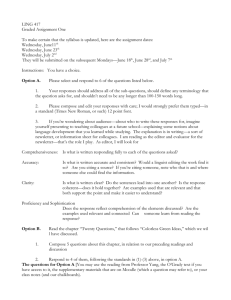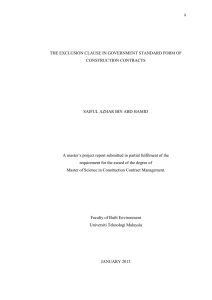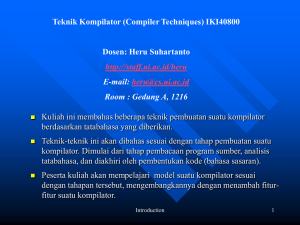Class -10-State and Power
advertisement
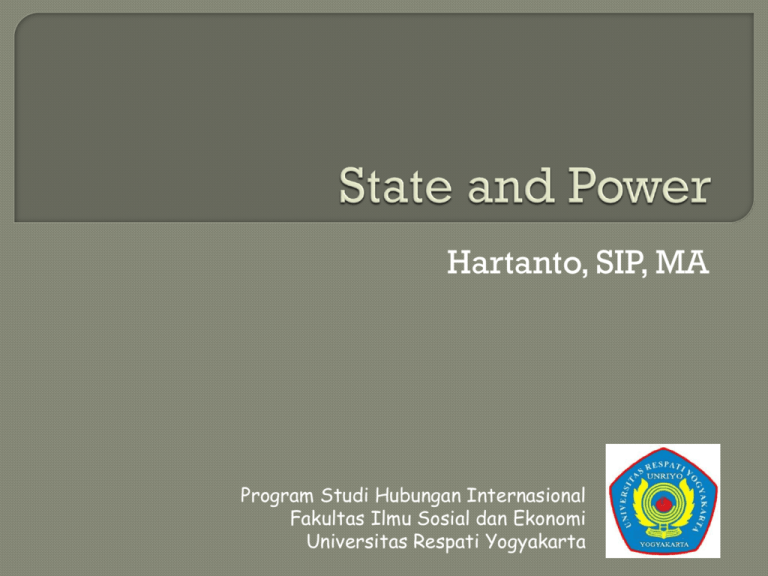
Hartanto, SIP, MA Program Studi Hubungan Internasional Fakultas Ilmu Sosial dan Ekonomi Universitas Respati Yogyakarta State is central in IR Studies Fundamental Condition should be met • Teritorial Base, geographically defined boundary • Stable population within boundary • Government • Recognize diplomatically by other state STATE is a legal geopolitical entity that has a permanent population, defined territory, and a legitimate government. Entitas yang berdiri akibat munculnya perjanjian westphalian 1648 yang memisahkan negara dan agama. NATION refers much more specifically to a group of people who feel themselves bound together by strong cultural, historical, religious, or linguistic ties. NATION STATE a nation with a political construct, i.e. territorially defined boundaries, legal government, and foreign recognition. Normative order, a symbol for the particular society The beliefs that bind the people living within its border The entity that has a monopoly on the legitimate use of violence within a society Functional unit that takes on a number of important responsibilities, centralizing and unifying them State enjoys sovereignty but is not an autonomous actor A process, involving contending interests A reflection both governmental and societal interest The repository of multiple and changing national interests The possessor of fungible source of power Generally hold a statist, or state centric view The State is an autonomous actor Constrained only by the structural anarchy of the international system Sovereign Guided by a national interest that is defined in terms of power Power is very important THE INSTRUMENTAL MARXIST Executing agent of the bourgeoisie Bourgeoisie react to direct societal pressure from the capitalist class THE STRUCTURAL MARXIST State as operating within the structure of the capitalist system Within the system the state is driven to expand not because of direct pressure but because of imperative of the capitalis system The executing agent of the bourgeoisie Influenced by pressure from the capitalist class Constrained by the structure of the international capitalist system Influence and control the outcome States have power vis a vis each other and with respect within the state Power is a multidimensional relationship Geographic size and position Natural resources Population Industrial development Class differencies National Image Public Suport Leadership Express to the target state, either publicly or privately, unhappiness with its policy choice Suggest that a better relationship would follow if the target state’s action change in a specific way Threaten that negative consequences will follow if the target state continues to move in specific direction Turn to an international body to seek multilateral legitimization for its position thus enlisting the support of other states on its behalf Give the target state what it wants (Diplomatic recognition, foreign aid) in return for desired action Remove what the target state wants (reduce foreign aid, withdraw diplomat, sever diplomatic ties) when it takes undesirable action Positive sanction, “offer carot” for moving in desirable action Negative sanction, punish the state target for moving in undesirable action Depends on its power potential Used by great power ex. USA Weak states can use this if controlling on great natural resources ex. OPEC sanction to USA during Arab-Israle War Get a target state to do something (compellence) Get a target state to undo something that has done (deterrence) Keep an adversary from doing something Deterrence adalah suatu tindakan ancaman militer terhadap pihak lain dengan maksud untuk mencegah agar pihak lain tersebut tidak melakukan tindakan agresif atau serangan militer. Jadi deterrence merupakan suatu tindakan pencegahan terhadap suatu aksi yang tidak dikehendaki sebelum hal tersebut terjadi (war prevention). Bersifat psikologis. Adalah suatu usaha untuk mencegah peperangan dengan cara men-discourage potensial agresor agar tidak menyerang. Caranya dengan mengancam pihak potensial agresor bahwa setiap serangan akan dibalas dengan kekuatan yang hebat sehingga kerugian yang akan diterima jauh melebihi keuntungan yang diperkirakannya akan diperoleh dari penyerangan tersebut. Defense adalah usaha untuk mengurangi kemampuan pihak musuh untuk menghancurkan atau menguasai sesuatu dari pihak defender. Tujuannya adalah untuk melawan pihak penyerang guna meminimalkan kerugian setelah deterrence gagal Compellence adalah suatu tindakan penggunaan kekuatan secara aktif dengan maksud untuk memaksa lawan agar melakukan suatu (misal mundur) atau menghentikan suatu tindakan yang sudah sedang dijalankan (misal menghentikan perang). Jadi Compellence ini adalah suatu tidakan yang dilakukan jika atau manakala deterrence sudah gagal. Contoh compellence yang sukses adalah apa yang dilakukan oleh Presiden Kennedy terhadap Pemimpin Uni Soviet, N. Khrushchev dalam kasus Teluk Babi, Cuba tahun 1962

